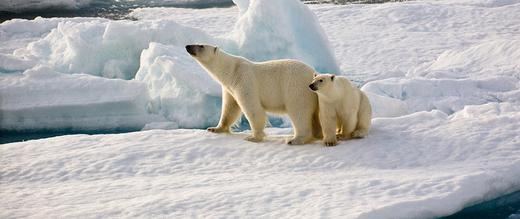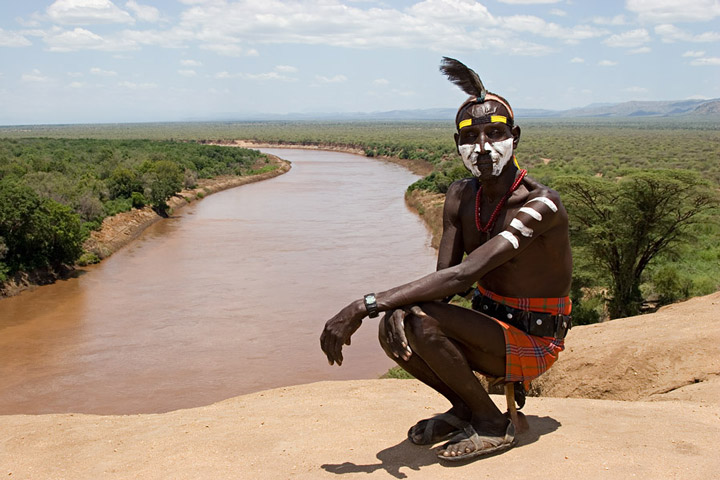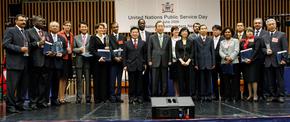The views expressed in our content reflect individual perspectives and do not represent the authoritative views of the Baha'i Faith.
The principles of the oneness of the world of humanity must be proclaimed, understood and put into practice, so that all the nations and religions may again remember the long-forgotten fact – that they are all the progeny of primordial humanity, Adam, and the denizens of one land. Are they not breathing one air? Is not the same sun shining upon all? – Abdu’l-Baha, Divine Philosophy, pp. 177-178.
Have you ever explored your family’s genealogy? I have friends and family members who love to look back in time at their ancestral history. Websites and television shows on the subject have multiplied lately, too. It seems like more and more people want to understand and know more about their origins.
So here’s a scientific, genealogical fact that might make your mind explode: all humans alive today, no matter where they’re from, share a surprisingly recent common ancestor, perhaps within the last 5,000 years. Everyone on Earth today can trace their family tree back to one person who lived during the time of the initial emergence of human civilization. We truly are all one family–the progeny, as Abdu’l-Baha put it, of primordial humanity.
But humans have lived for much longer than that—right? Let’s look, just for a moment, at the science.
We modern humans probably got our start, genetic scientists now estimate, somewhere between 163,900 and 260,200 years ago in eastern Africa, on the banks of the Omo River, in the area we call Ethiopia today. That’s the approximate, give-or-take-a-few-thousand-years period when one of the first modern men evolved, called Y-chromosomal Adam. Mitochondrial Eve—the first modern woman—probably also emerged around that time or a little later. Who were these strangely-named first people?
Scientists have determined that Y-chromosomal Adam was the most recent common ancestor (in scientific terms, the MRCA) that all currently-existing male human Y chromosomes came from. All men are his descendants.
In the same way, mitochondrial Eve was humanity’s most recent common ancestor, or MRCA, on the maternal side. Her mitochondrial DNA exists in every mother and grandmother for the last 200,000 or so years, all the way back until every line on everybody’s genealogical chart converges on just one woman. We are all her descendents.
Of course, these two people didn’t materialize out of thin air, and they didn’t even necessarily live during the same time period. Mitochondrial Eve had other female contemporaries, maybe thousands—but only her DNA produced that direct, unbroken genetic line of women to everyone now living.
Y-chromosomal Adam and Mitochondrial Eve both existed, though, during that period a few hundred thousand years ago when anatomically-modern human beings–Homo sapiens sapiens, which means “the doubly-wise man” in Latin–developed as a population distinct from other genus Homo sub-species.
We know from the fossil and the geological records that our common ancestors, and especially Adam and Eve’s progeny, came from a world that turned very cold soon after their emergence. They survived in Africa, then a temperate region, with much of the rest of the world covered in mile-deep ice. Earth’s most recent glacial period, which most of us call the Ice Age, happened during the last thousand centuries of the Pleistocene Era, from approximately 110,000 to 12,000 years ago. When the ice began to recede as the Earth’s climate started to warm again, scientists believe that our human forefathers and foremothers began their migrations out of Africa to Asia, Europe, Australia and the Americas.
We all owe our existence to those ancient people, our common ancestors, and to the climactic conditions that made their lives and the growth of the species possible. Can you imagine the spiritual challenge such an intrepid exploration of the vast unknown must have posed for them?
Today our seven billion relatives on planet Earth now face a similar and equally daunting spiritual challenge—instead of ice, we now have to find a way to deal with rapidly-rising manmade heat. For the first time in human history, our planet is warming very quickly, far above any previously-recorded levels. That global warming, caused in large part by human activity, comes primarily from the burning of fossil fuels and the build-up in Earth’s atmosphere of their greenhouse gases. This threatens us all.
Don’t believe it? If you read the Fifth Assessment Report by the Intergovernmental Panel on Climate Change (http://ipcc.ch/) you will. Produced by over 600 scientific experts from 32 countries, approved by 195 nations, the report synthesizes over 9,200 scientific publications and takes into account 54,677 comments from 1,089 scientist-reviewers. One of the most rigorously-reviewed scientific documents in history, the IPCC report categorically concludes that the warming of the world is unequivocal, and that over recent decades human actions have been the primary cause. Climate change isn’t just a theory or a belief—it’s scientific fact, confirmed by the overwhelming preponderance of the world’s scientists.
Since sapiens is Latin for wise, and science has labeled us doubly-wise, we humans need to wisely address this enormous global distress signal we’re getting from our own planet. But first, we need to define it—is climate change a technological threat, a scientific challenge, a problem of industrialized capitalism, a concomitant of overpopulation, a policy and political struggle, an energy issue? We could probably answer yes to all those questions, but it would get us nowhere closer to a solution.
Alternatively, we could consider climate change a chiefly spiritual problem, a conundrum borne out of our collective failure as a species to respect, care for and honor the Earth’s environment.
With that framework in mind, this short series of essays will address why climate change poses such a disturbing spiritual problem for humanity and for our planet. We’ll look at the big questions climate change brings us, and ask how the human family can best respond to them. We’ll see how and why individual environmental efforts, no matter how praiseworthy or responsible, won’t make enough of a difference—and what will. We’ll examine the most recent science, including some surprisingly positive news. We’ll explore some of the innovative new global interfaith climate change efforts on behalf of all the world’s religious traditions. Then we’ll suggest ways you can actually have a meaningful personal impact on this enormous challenge facing all of the descendants of Adam and Eve.


















Comments
Sign in or create an account
Continue with Facebookor